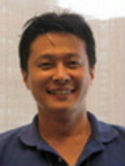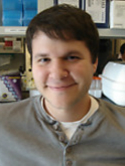Modelling pathogenesis and treatment of familial dysautonomia using patient-specific iPSCs Journal Article
| Authors: | Lee, G.; Papapetrou, E. P.; Kim, H.; Chambers, S. M.; Tomishima, M. J.; Fasano, C. A.; Ganat, Y. M.; Menon, J.; Shimizu, F.; Viale, A.; Tabar, V.; Sadelain, M.; Studer, L. |
| Article Title: | Modelling pathogenesis and treatment of familial dysautonomia using patient-specific iPSCs |
| Abstract: | The isolation of human induced pluripotent stem cells (iPSCs) offers a new strategy for modelling human disease. Recent studies have reported the derivation and differentiation of disease-specific human iPSCs. However, a key challenge in the field is the demonstration of disease-related phenotypes and the ability to model pathogenesis and treatment of disease in iPSCs. Familial dysautonomia (FD) is a rare but fatal peripheral neuropathy, caused by a point mutation in the IKBKAP gene involved in transcriptional elongation. The disease is characterized by the depletion of autonomic and sensory neurons. The specificity to the peripheral nervous system and the mechanism of neuron loss in FD are poorly understood owing to the lack of an appropriate model system. Here we report the derivation of patient-specific FD-iPSCs and the directed differentiation into cells of all three germ layers including peripheral neurons. Gene expression analysis in purified FD-iPSC-derived lineages demonstrates tissue-specific mis-splicing of IKBKAP in vitro. Patient-specific neural crest precursors express particularly low levels of normal IKBKAP transcript, suggesting a mechanism for disease specificity. FD pathogenesis is further characterized by transcriptome analysis and cell-based assays revealing marked defects in neurogenic differentiation and migration behaviour. Furthermore, we use FD-iPSCs for validating the potency of candidate drugs in reversing aberrant splicing and ameliorating neuronal differentiation and migration. Our study illustrates the promise of iPSC technology for gaining new insights into human disease pathogenesis and treatment. © 2009 Macmillan Publishers Limited. |
| Keywords: | human cell; mutation; pathogenesis; genetic analysis; phenotype; cytology; reverse transcription polymerase chain reaction; gene expression; genetic transcription; cell differentiation; biotechnology; stem cell; human cell culture; medical research; bioassay; cell isolation; cell migration; pluripotent stem cell; pathogenicity; point mutation; nerve cell; transcriptome; rna splicing; i kappa b kinase; disease treatment; heritability; neurology; sensory system disorder; autonomic nerve; derivatization; dysautonomia; nerve cell degeneration; peripheral nervous system; sensory nerve cell |
| Journal Title: | Nature |
| Volume: | 461 |
| Issue: | 7262 |
| ISSN: | 0028-0836 |
| Publisher: | Nature Publishing Group |
| Date Published: | 2009-09-17 |
| Start Page: | 402 |
| End Page: | 406 |
| Language: | English |
| DOI: | 10.1038/nature08320 |
| PROVIDER: | scopus |
| PMCID: | PMC2784695 |
| PUBMED: | 19693009 |
| DOI/URL: | |
| Notes: | --- - "Cited By (since 1996): 54" - "Export Date: 30 November 2010" - "CODEN: NATUA" - "Source: Scopus" |
Altmetric
Citation Impact
BMJ Impact Analytics
MSK Authors
Related MSK Work













